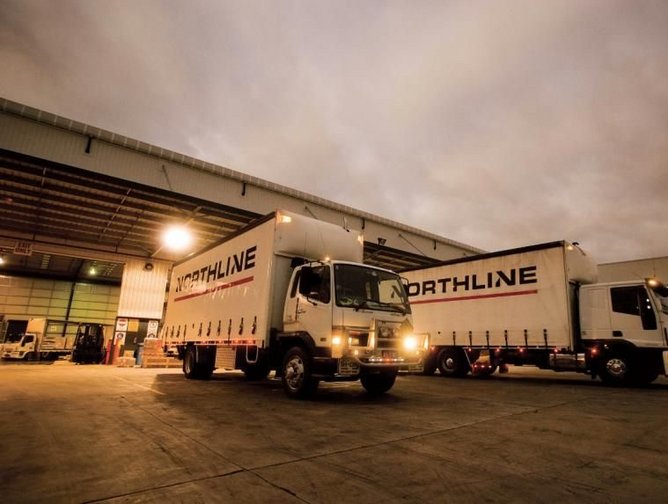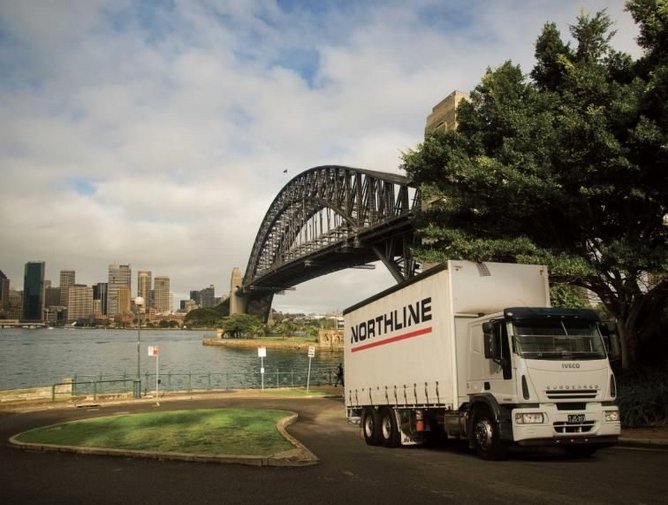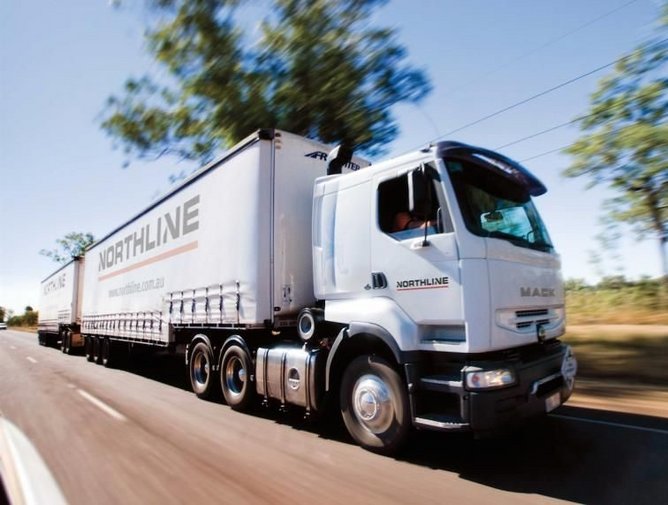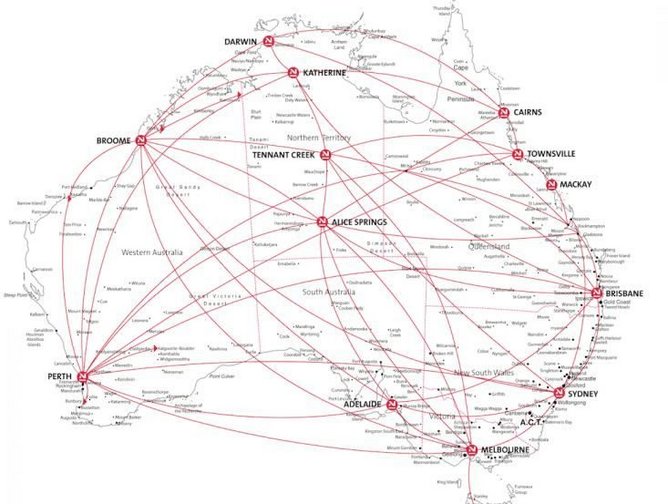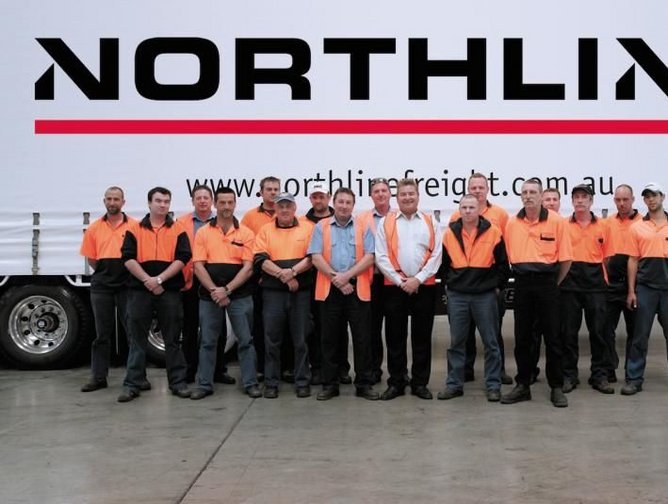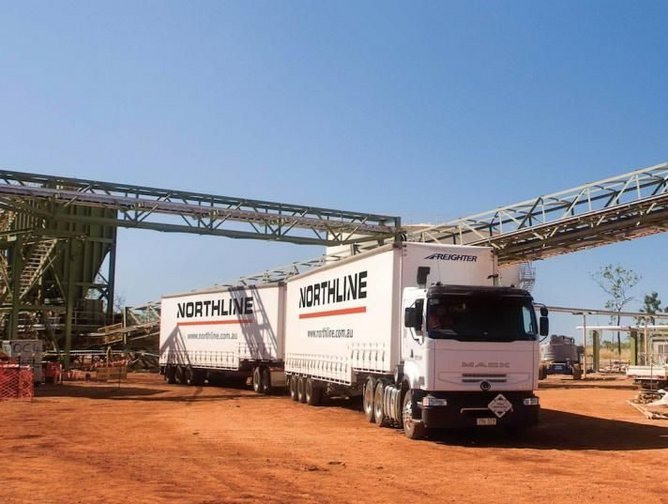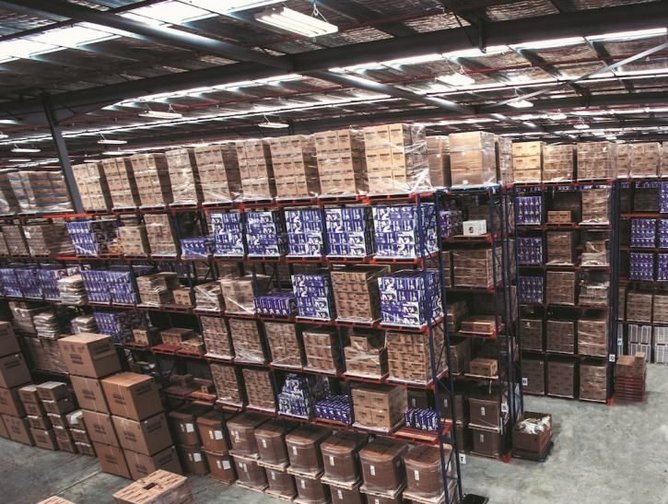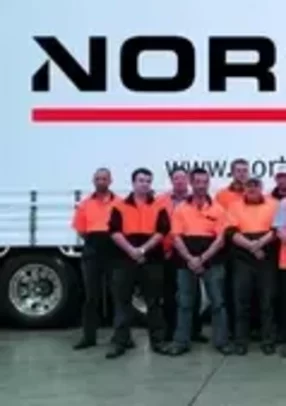Northline conquers supply-chain challenges with end-to-end solutions
Since 1983, Northline has been in the business of moving and storing freight throughout Australia, supporting supply chains to help its clients thrive. “We can provide an end-to-end solution across all industries,” said Craige Whitton, Northline’s Chief Executive Officer. “International transport, interstate transport, intrastate transport, warehousing and distribution—we can tailor a solution or any component of a solution to suit customer’s requirements to solve their supply chain challenges.”
Starting with a line north from Adelaide to Darwin, today Northline offers road and rail freight management, warehousing and distribution, and global freight forwarding from 13 branches serving every major region in Australia. As Northline cultivates its reach and capabilities, it continues to stay true to its Australian roots.
Growth in Darwin
An important component of growth for any business is self-investing, and Northline today is investing in construction at its Darwin port site in Australia’s Northern Territory. This marks the third major property development project for Northline in recent years, following a new Brisbane facility in Redbank in late 2014 and a new Sydney facility in Smithfield in January 2014.
“We have a new facility that is underway and due to be completed by the end of August this year,” said Whitton of development in Darwin. “It’s about 600 metres from the railhead with great links to road, rail and port facilities, and it’s going to allow us to get some synergies within our business, to get more efficient and productive and improve the way we do things up there.”
The 40,000 square metre facility, under development by Gibb Group with funding and ownership by Charter Hall, is expected to double the size and capacity of Northline’s Northern Territory operations. The decision to increase capacity in operations in Darwin was a conscious one—the site is important to Northline’s history as a business.
“The company name Northline was created 32 years ago, and the basis of it was a line north from Adelaide all the way through to Darwin—and along the way stopping in Alice Springs, Tennant Creek, and Katherine,” explained Whitton, noting that—while the company has links with every major city from Perth and Brisbane to Sydney and Melbourne today—Darwin is as critical a juncture for trade and distribution as it’s ever been.
“The territory has been a harder market for many people—but we always like to take on the tougher challenges,” said Whitton. “From that perspective, it’s been a part and parcel of everything we do for the last 32 years. Now is as great a time as ever to expand.”
The culture of a family business
Northline is a company that takes pride in not just its achievements, but also its identity as a fully Australian, family-owned entity with operations throughout the continent.
“Northline is a family business—it is and it always will be,” said Whitton. “We maintain a family culture whilst operating in a completely corporate environment—we try to have the best of both worlds. Ultimately, by being family owned, we feel that we are able to look after our people in many ways.”
This attention to looking after its people manifests in many ways. One crucial priority at Northline is workplace safety, and it has the records to prove it—at the end of June, the company is slated for a completion of two years injury free, putting its lost time injury ratio at zero.
The company also takes a keen interest in people with the potential to be an asset in the future. This outlook has propelled Northline’s graduate program, an ongoing two-year internship program where university students work their way through different areas of the business to find the perfect place that best complements their strengths and interests.
“They get signed off by the various managers in each area before they continue, to confirm their competency in that before they move on to the next area, and complete projects and presentations along the way,” Whitton explained. “At the end of that time, they’ll end up in different roles throughout the business—whether they end up in sales and marketing, or HR, or any other operational parts of the business as well.”
Northline currently has seven students enrolled in its graduate program, and successful students can look forward to a bright career: three students who enrolled in the company’s first graduate program 15 years ago still work for Northline to this day, each one occupying a national management role.
In recent years Northline has been finding additional ways to increase its investments in its people. Starting in July with the next financial year, the company has plans to roll out a substantial new learning and development program that will encompass staff at all levels of operations.
“We’ll be able to have our operational trainers spending time with staff in the field, and equally we’ll have a supervisory management and development program,” said Whitton. “Then we’re going to have some executive education programs as well. It’s all about retention and the development of our staff. That’s where we’re focused.”
Growth and expansion
There are plans for growth shaping up on the horizon for Northline. With its Darwin development work nearing completion, the business will soon turn its sights toward upgrades in Adelaide. “Between Redbank in Brisbane, Smithfield in Sydney, and now East Arm in Darwin—our Melbourne and Perth facilities were purpose built for us a few years ago, so Adelaide will be the only remaining capital city that we need to redevelop,” said Whitton. “That’s a little further off, but we need to have a new development finished in Adelaide for 2017, so it’s on the drawing board as we speak. We will certainly be looking at the technology and our requirements over the next 12-18 months.”
While the business is already involved in providing services across a wide cross-section of industries and geographies, it is investing time and effort to expand in a few specialty areas—specifically global freight forwarding, importing and exporting with China, and freight services and warehousing solutions specifically for customers in the mining, construction, and oil and gas industries that are looking for cost savings as commodity prices fluctuate.
“As far as Northline’s concerned, over the next few months we will see expansion across all of the sectors, whether that be transport or warehousing, international or mining,” said Whitton. “We see them as growth opportunities for us going forward, and I think that will also apply to all geographies, particularly within Australia. So there’s plenty on the horizon. ”
Northline’s points of difference
What ultimately sets Northline apart from the competition is not merely one point, but several traits working together in tandem.
“The first one is that we’re Australian owned and operated; the second is that we offer a breadth of service that not many others have—whether it’s local, interstate or international transport and warehousing, we can provide a one stop shop for customers across all of their supply chain requirements,” said Whitton. “Then, the focus on our customers—we have an internal mantra of delighting our customers—and making sure that we’re at the cutting edge of technology. Those four things combined are the four strongest traits—and points of difference for Northline.”
